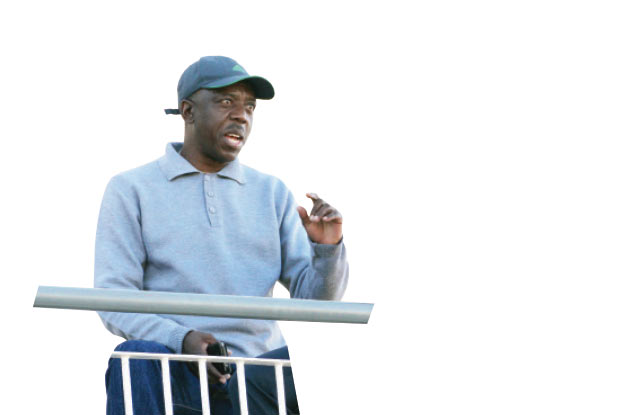EDITORIAL COMMENT: Remove retrospective effect on land tax

 Farmers have taken advantage of the ongoing public consultations on the Land Commission Bill to express their frustrations with the Government over the retrospective application of a new land tax.
Farmers have taken advantage of the ongoing public consultations on the Land Commission Bill to express their frustrations with the Government over the retrospective application of a new land tax.
Introduced last year, the $5 land levy for every hectare an A2 farmer owns, is meant to not only promote production but also raise money to fund periodic land audits and compensate white former farmers. The idea behind the levy is that a farmer would be forced to enhance his or her production to be able to raise enough money, part of which he or she would use to pay the rental to the Government. If one doesn’t farm, and resultantly can’t pay the rental, it is believed, he or she would be forced to give up part of their land, which would be allocated to other able farmers, many of whom are on waiting lists across the provinces.
If one strives to boost farm production, the country would be in a good position to achieve greater utilisation of farms, after years of complaints that some new farmers are sitting on their farms, only finding use for them as venues for weekend braai parties.
All factors taken together, the land levy can be an instrument to widen the number of beneficiaries of the land reform programme, stimulate greater production and raise money to pay the former farmers and to finance infrastructural development in farming areas.
In terms of the Finance Act No. 8 of 2015 an A2 farmer must pay $3 land rentals per hectare per year, and $2 unit tax per hectare annually, which works out to $5 per hectare per year. A1 communal farmers pay $10 land rentals per year, and $5 unit tax over the same period, a total of $15 per year. The Ministry of Lands and Rural Resettlement collects the money and forwards it to Treasury before the latter allocates the unit tax to respective local authorities. An estimated $20 million would be raised annually.
However, in contributions for the Land Commission Bill, farmers in Mashonaland Central, Mashonaland East, Manicaland and Masvingo are unhappy that they have to pay large sums of money with effect from when they were allocated the farms. At the same time, some farmers feel that at $5 per hectare per year, the levy is too high for cattle ranchers on typically larger pieces of land, up to 1 500ha.
Zimbabwe Commercial Farmers’ Union Masvingo provincial chairperson Mr Livingstone Mabika told the joint committee of the Senate Thematic Committee on Peace and Security, and the National Assembly’s Portfolio Committee on Agriculture, Lands and Irrigation Development at Roy Business Centre in Masvingo North that the blanket charge of $5 was not sustainable for farmers in Regions Three, Four and Five.
“Each beast takes about three years to mature, of which it grazes about 12 hectares per year, meaning that if you sell it at two years, you would have paid $120 land levy without factoring in the other costs, which are obviously way more than that,” said Mr Mabika.
“It is gloomy in the sense that in this province, some farmers have about 1 500 hectares for cattle ranching, meaning that they are expected to pay $7 500 in rentals per year. To make it worse, they backdated the rentals to when we dollarised in 2009. In essence, some farmers are expected to have paid about $60 000 in rentals.”
Mashonaland Central farmer, Mrs Buppe Changara, also told the committee that the land levy made it difficult for the majority of farmers.
“Government introduced land tax as from last year but when we were given invoices, you find that land taxes have been implemented from the date one was given an offer letter. I was given an offer letter after the death of my husband in 2007, which comes into thousands of dollars — about $40 000. I don’t know how I am going to pay that,” she said.
It is encouraging that the farmers are not rejecting the introduction of the levy. They know the rationale behind it but cannot understand why the Government gave it a retrospective effect. Yes, many farmers had been producing well before last year’s implementation of the policy and earned money from their farm operations, but to demand that they pay the tax backdated to the time when the economy was dollarised looks most unfair.
We can only imagine the shock farmers had on seeing huge sums on invoices from the Ministry of Lands and Rural Resettlement, huge sums that came without any warning.
We are concerned that if the policy is not reviewed and, for example, Mrs Changara is forced to pay $40 000 and other farmers up to $60 000, the levy could pose a negative impact thus hamper ongoing efforts to nurture our new farmers and grow the agriculture industry.
However, we don’t agree with Mr Mabika that $5 per hectare per year is too high for beef producers who normally have bigger farms. We argue that at the present level, a productive farmer should be able to afford paying the tax, but would find it problematic if he has to pay it backdated to 2009.
It would be a great decision, one which would be also fair, if the Government does away with the retrospective application of the tax and start billing farmers with effect from when the policy was promulgated last year.









Comments